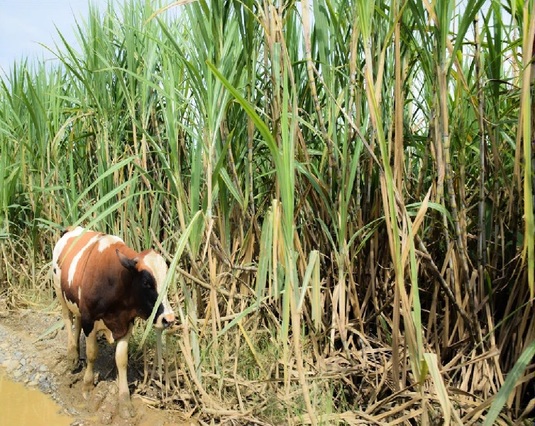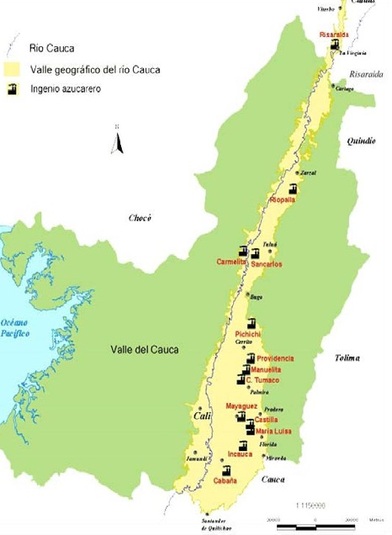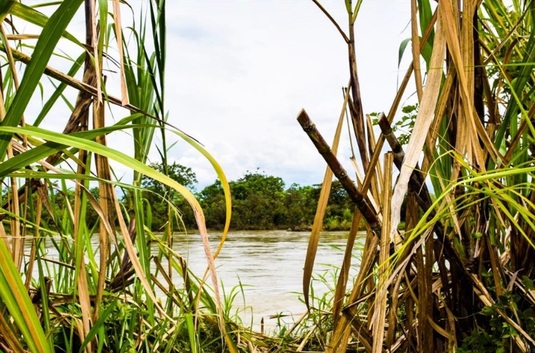The Burning of Sugar Cane
Socio-Environmental Conflicts in the Southwest Region of Colombia
13.11.2017
by Stephanye Zarama Alvarado
Supervisor: Dr. Ursula Münster
“Never doubt that a small group of thoughtful,
committed citizens can change the world;
indeed, it is the only thing that ever has"
Margaret Mead (1901–1978)

Photo Credit: Stephanye Zarama Alvarado.
Environmental impacts, caused by the advance of economic frontiers towards new territories, motivate protests by some social groups in defense of their rights to land and means of life. Indigenous and African-Colombian communities, peasants, the inhabitants of marginal urban areas, and other vulnerable social groups are those most affected by the expansion of agro-industrial and extractive activities. Since colonial times, the cultivation of sugarcane has been taking place in different parts of southwest Colombia. Academic research, legal claims, and testimonies from the communities have raised the alarm about the negative impacts of the expansion of sugarcane plantations on ecosystems and human health. Different collective actions by local communities are signs of a strongly felt need for resisting this expansion. These stories of environmental struggles need to be told in order to strengthen the calls for environmental justice and support the communities’ claims against the companies and the state, so that the latter take responsibility for the violence inflicted through their activities or their neglect.

Photo Credit: Ceñicaña, Public domain, Retrieved 02 August 2017 from http://www.cenicana.org/quienes_somos/agroindustria/historia.php
The first Environmental Justice (EJ) Atlas, created by the Institute of Environmental Science and Technology (ICTA) at the Universitat Autoònoma de Barcelona in 2014 and supported by the European Commission, enables visualization of cases of socio-environmental conflicts. More than 2,000 cases of socio-environmental conflicts have already been reported in the EJ Atlas. The aim of this final project is, therefore, to document three cases of socio-environmental conflicts that are involved in the expansion of sugarcane growth in southwest Colombia by applying qualitative and quantitative methods, in order to contribute to the database of the Environmental Justice Atlas. These three cases are located in the department of Valle del Cauca (Villagorgona) and Cauca (Puerto Tejada and Lomitas). They show how the stakeholders, their interests, and power inequalities are contributing to the detrimental experiences of communities in the valley of Cauca river.

Photo Credit: Stephanye Zarma Alvarado.
Final Project
- The Burning of Sugar Cane (7 MByte)

